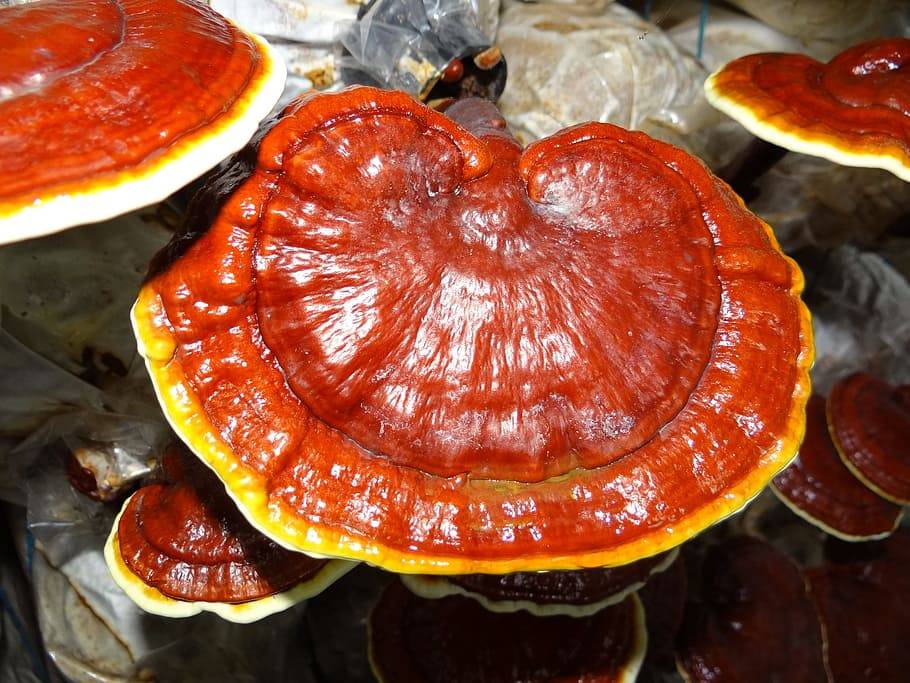
The reishi mushroom, also known as Ganoderma lucidum and lingzhi, is a fungus that thrives in hot, humid areas of Asia. This fungus has been used in Eastern medicine for many years. Several molecules found within the mushroom, including triterpenoids, polysaccharides, and peptidoglycans, may be responsible for its health effects.
While the mushrooms may be consumed fresh, powdered versions of the fungus or extracts containing these particular compounds are also common. Cell, animal, and human studies have all been tested on these various forms.
Benefits of Reishi Mushrooms
The following are five scientifically proven reishi mushroom benefits. The first three are supported by more evidence, whereas the others are less conclusive.
Immune System Booster
The ability of the reishi mushroom to enhance your immune system is one of its most important effects. While certain details are still unknown, test-tube studies have indicated that reishi can influence the genes in white blood cells, which are important components of your immune system.
Furthermore, these studies have discovered that some reishi forms may alter inflammatory pathways in white blood cells. Some of the chemicals contained in the mushroom have been proven in cancer patients to boost the activity of a type of white blood cell called natural killer cells. Natural killer cells help the body fight against infections and cancer.
Another research found that reishi can boost the amount of other white blood cells (lymphocytes) in colorectal cancer patients. Some data suggests that it can also benefit healthy people.
In one research, the fungus enhanced lymphocyte function, which aids in the fight against infections and cancer, in athletes subjected to stressful situations.
Other studies in healthy individuals, however, found no change in immune function or inflammation after 4 weeks of consuming reishi extract.
Cancer-Resistant Properties
Because of its possible cancer-fighting qualities, this fungus is consumed by a large number of individuals. In instance, one research of nearly 4,000 breast cancer survivors discovered that around 59% consumed reishi mushroom.
Furthermore, numerous test-tube studies have indicated that it can cause cancer cells to die. Some studies have looked at whether reishi might help with prostate cancer because of its effects on the hormone testosterone.
According to one study, one year of reishi treatment reduced the number and size of tumours in the large intestine. It stimulates the activity of the body's white blood cells, which helps in the fight against cancer and improves the quality of life in cancer patients.
Could Help With Fatigue and Depression
One research examined its effects on 132 patients suffering from neurasthenia, a poorly defined disease characterised by aches, pains, dizziness, headaches, and irritability.
After 8 weeks of taking the supplements, the researchers discovered that fatigue was decreased and well-being improved.
Another research revealed that consuming reishi powder for four weeks decreased tiredness and enhanced quality of life in a group of 48 breast cancer survivors. The study also reported reduced anxiety and depression.
Other Potential Benefits
Heart Health
In a 12-week study of 26 people, reishi mushroom was found to enhance “good” HDL cholesterol while decreasing triglycerides. Other studies in healthy people, however, found no change in these heart disease risk variables.
Furthermore, a full analysis of five different trials involving around 400 participants found no favourable impacts for heart health. The researchers discovered that eating reishi mushrooms for up to 16 weeks did not improve cholesterol.
Overall, further study on reishi mushrooms and heart health is required.
Blood Sugar Treatment
Several studies have shown that chemicals contained in the reishi mushroom can lower blood sugar levels in animals.
Some preliminary human research found similar results. The majority of studies have not substantiated this benefit. Researchers discovered no benefits of fasting blood sugar levels after analysing hundreds of individuals.
Blood sugar levels after meals showed unclear results. In some cases, reishi mushroom reduced blood sugar levels, while in others, it was worse than a placebo.
More research is also required in this field.










